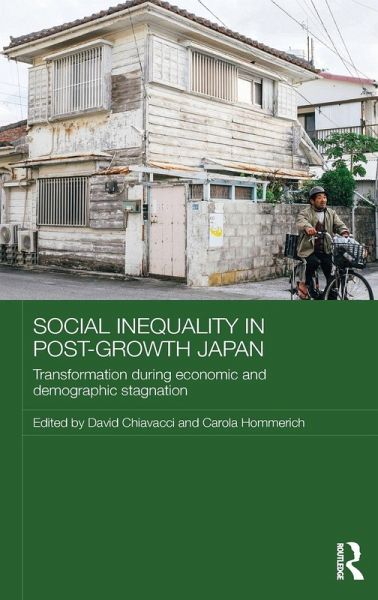
Social Inequality in Post-Growth Japan
Transformation during Economic and Demographic Stagnation
Herausgeber: Chiavacci, David; Hommerich, Carola
Versandkostenfrei!
Versandfertig in 1-2 Wochen
177,99 €
inkl. MwSt.

PAYBACK Punkte
89 °P sammeln!
In recent decades Japan has changed from a strongly growing, successful developing country with a high level of social equality to a country with a stagnating economy, a shrinking population and a very high proportion of elderly people. Within this, and especially since the crisis of 2007-09, new forms of inequality are emerging and deepening. These new forms of inequality are complex, are caused in different ways by a variety of factors, and require deep-seated reforms in order to remedy them. This book provides a comprehensive overview of inequality in contemporary Japan. It examines inequal...
In recent decades Japan has changed from a strongly growing, successful developing country with a high level of social equality to a country with a stagnating economy, a shrinking population and a very high proportion of elderly people. Within this, and especially since the crisis of 2007-09, new forms of inequality are emerging and deepening. These new forms of inequality are complex, are caused in different ways by a variety of factors, and require deep-seated reforms in order to remedy them. This book provides a comprehensive overview of inequality in contemporary Japan. It examines inequality in labour and employment, in welfare and family, in education and social mobility, in the urban-rural divide, and concerning immigration, ethnic minorities and gender. The book also considers the widespread anxiety effect of the fear of inequality; and discusses how far these developments in Japan represent a new form of social problem for the wider world.












